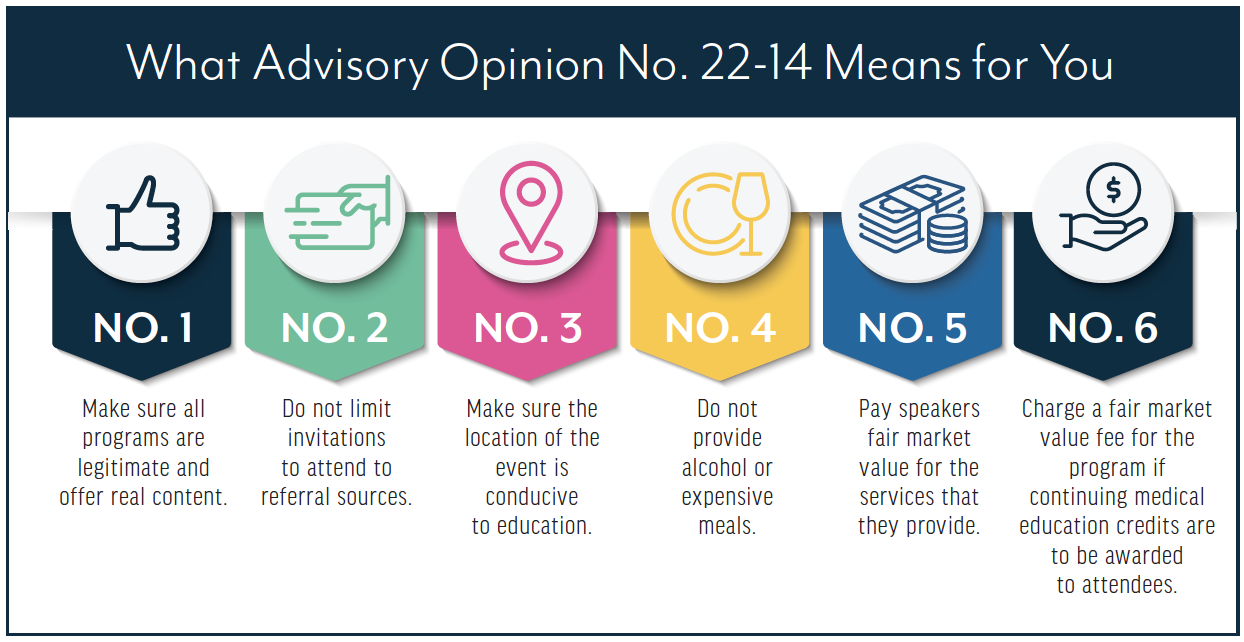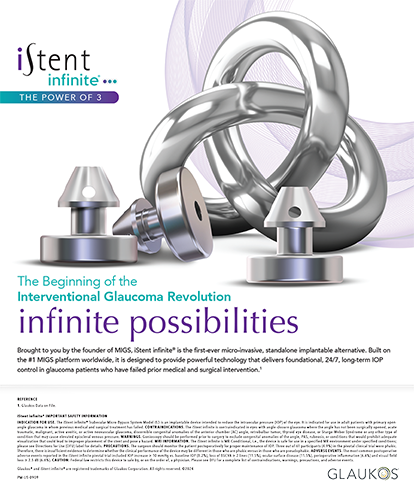In late June, the US Department of Health and Human Services Office of Inspector General (OIG) issued Advisory Opinion Number 22-14 to address four ophthalmologist-proposed scenarios for the provision of educational services to optometrists. The request for the opinion was likely triggered by an ongoing Federal False Claims Act case involving a Tennessee practice that is accused of having inappropriate comanagement relationships with and providing free continuing medical education to local optometrists.
This article summarizes the OIG’s Advisory Opinion and provides six take-home messages for ophthalmologists that were presented by Alan E. Reider, JD, MPH, during the American-European Congress of Ophthalmic Surgery Summer Symposium in July.
PROPOSED SCENARIOS
An ophthalmology practice requested an advisory opinion from the OIG on the practice’s proposal to host two annual continuing education programs for local optometrists. The first program is anticipated to be held in person and last approximately 6 hours. The second is expected to be held in the evening either in person or virtually and to last approximately 2 hours. Both programs will be certified, and continuing medical education credits will be awarded to attendees. All local optometrists—not just referral sources—will be invited. The faculty for both programs will include outside speakers who may be from academic institutions as well as members of the sponsoring ophthalmology practice. A modest breakfast and lunch will be provided for the 6-hour program, and, if the 2-hour program is hosted in person, a modest dinner will be provided.
In its request to the OIG, the ophthalmology practice proposed four scenarios:
No. 1. It would charge a fair market value registration fee designed to cover all expenses for the educational session. Any shortfall would be covered by the ophthalmology practice.
No. 2. It would shoulder the entire financial burden and would not charge attendees a registration fee.
No. 3. It would not charge a registration fee but would seek financial support from industry. Any shortfall would be covered by the ophthalmology practice, and any overage would go to charity.
No. 4. It would charge a fair market value registration fee and seek financial support from industry; any overage would be contributed to charity.
ONE FAVORABLE OPINION
As a preliminary matter before analyzing the practice’s proposals, the OIG focused on the legitimacy of the proposed educational program. The OIG noted that, in its Special Fraud Alert in November 2020 regarding suspect speaker programs, certain red flags that compromised the integrity of these programs were identified. The red flags included presenting little or no substantive information, providing alcohol or a meal that exceeds what is considered to be of modest value, selecting a location for the program that is not conducive to education (eg, sporting events, wineries, or fishing trips), basing speaker selection on past or potential referral generation, and paying speakers an amount that exceeds fair market value. Based on its review of the proposed educational program, the OIG concluded that none of the red flags was triggered.
The OIG then turned to the question of funding the program. Here, the OIG provided a favorable opinion only for scenario No. 1. The OIG noted that the practice might have to cover a portion of the cost in this scenario but determined that the proposal presented a sufficiently low risk of abusive conduct under the Federal Anti-Kickback Statute.
The second and third scenarios were not given favorable opinions. For these, the OIG noted that the provision of goods and services (ie, the educational program and related continuing medical education credits) had an independent value that could be considered a benefit for the recipient (ie, the optometrist) and could serve as an incentive for attendees to refer patients to the ophthalmology practice. Furthermore, having financial support from industry as proposed in scenario No. 3 increased the risk that both the ophthalmology practice and local optometrists could be incentivized to prescribe or order the company’s products. Thus, the OIG concluded that the second and third scenarios presented more than a minimal risk of fraud and abuse.
Finally, the OIG also declined to grant a favorable opinion to scenario No. 4. The OIG noted that it is common practice for industry to support educational programs but that those programs are normally sponsored by nonproviders of care, such as professional societies. In the scenarios presented here, however, the programs would be sponsored by a provider of care (ie, the ophthalmology practice), and the sponsoring company or companies would pay for the expenses for which that ophthalmology practice would otherwise be responsible. As a result, the support from industry raises concern that the practice would be incentivized to prescribe or order the company’s products.
Six RELEVANT POINTS
An unfavorable Advisory Opinion does not necessarily mean that the conduct would violate the law, but it does provide insight into how the OIG thinks. Practitioners should therefore consider their own tolerance for risk when deciding how to format the educational programming their practice provides to the optometric community. Following the six most relevant points of the OIG’s Advisory Opinion 22-14, outlined in What Advisory Opinion No. 22-14 Means for You, can help safeguard your practice from noncompliance.






